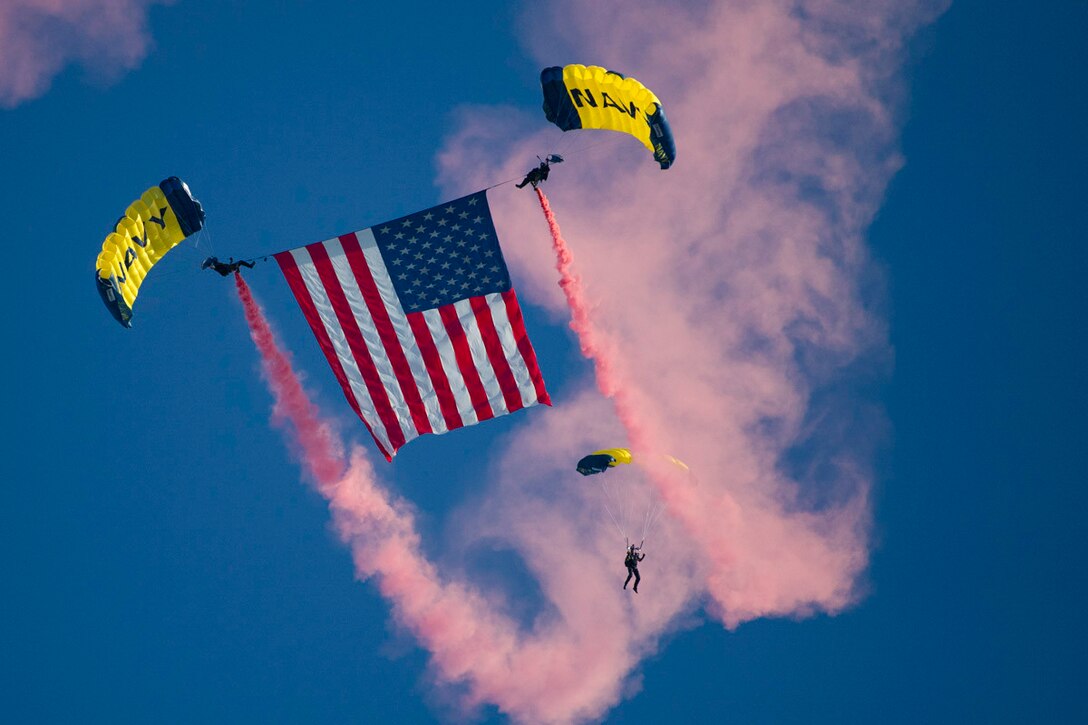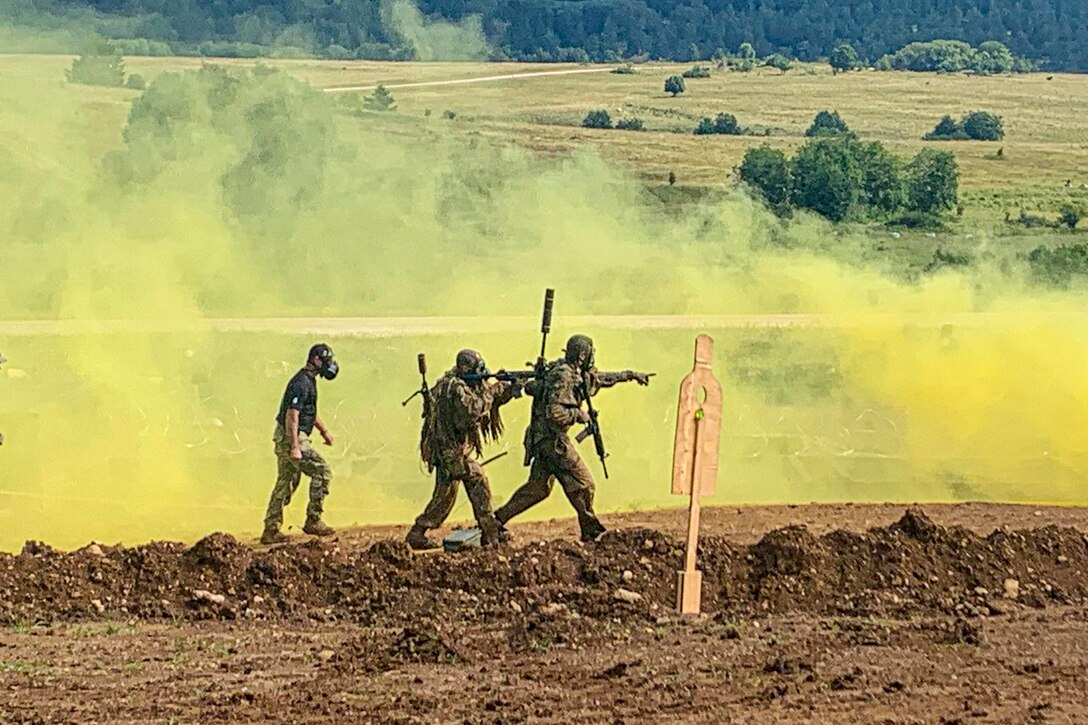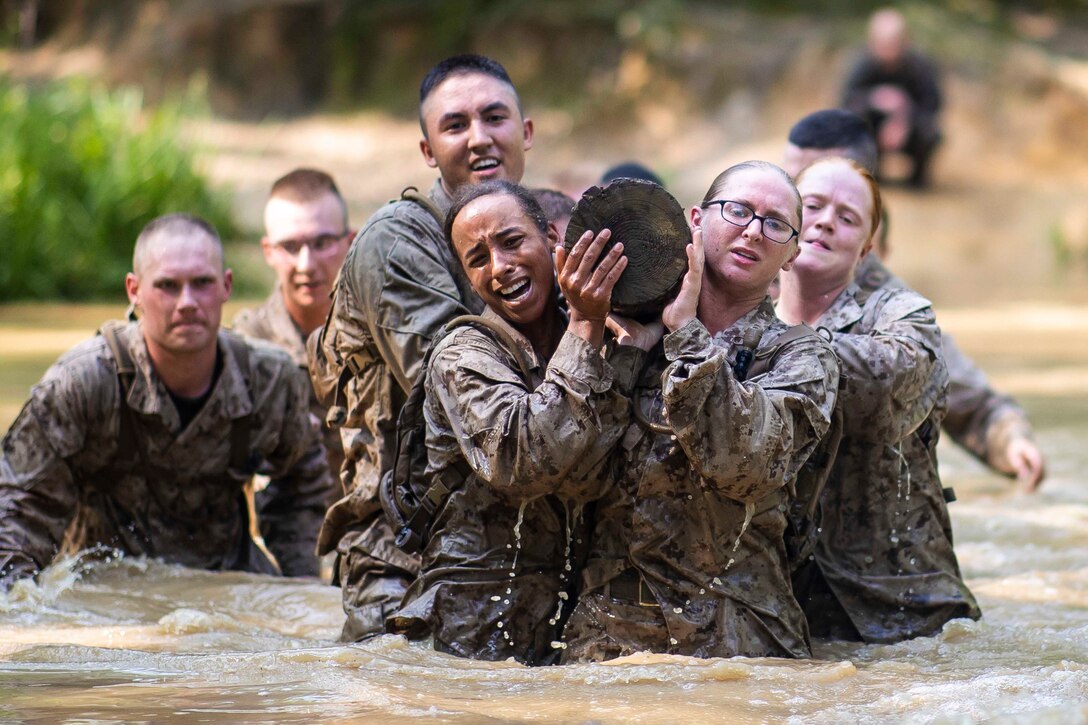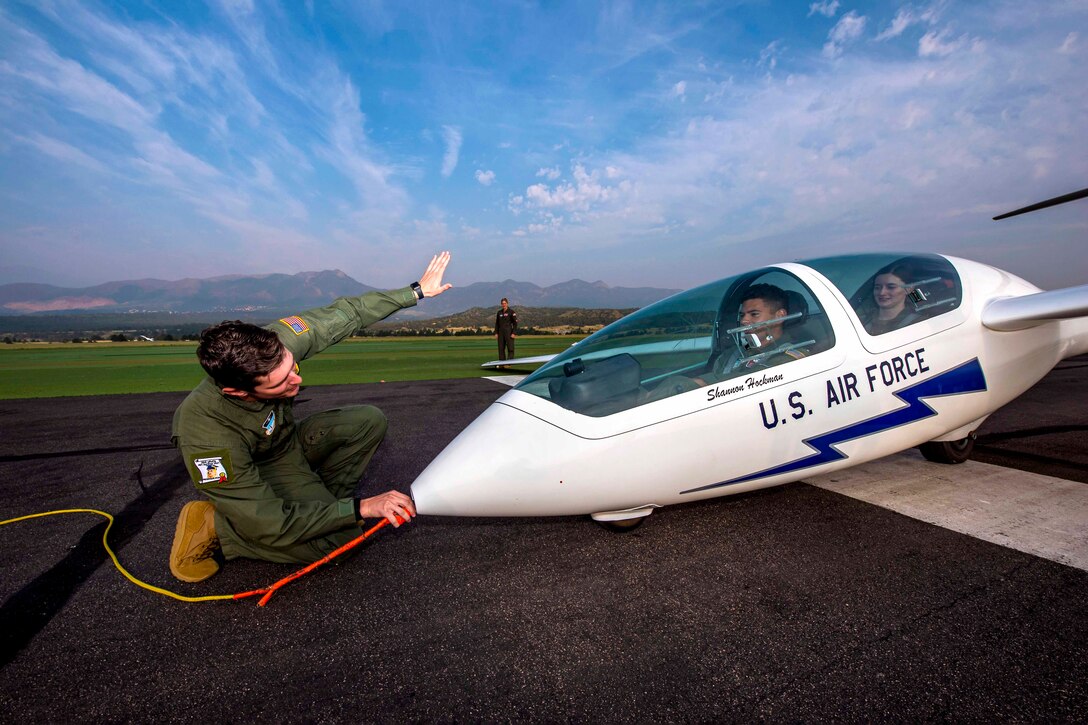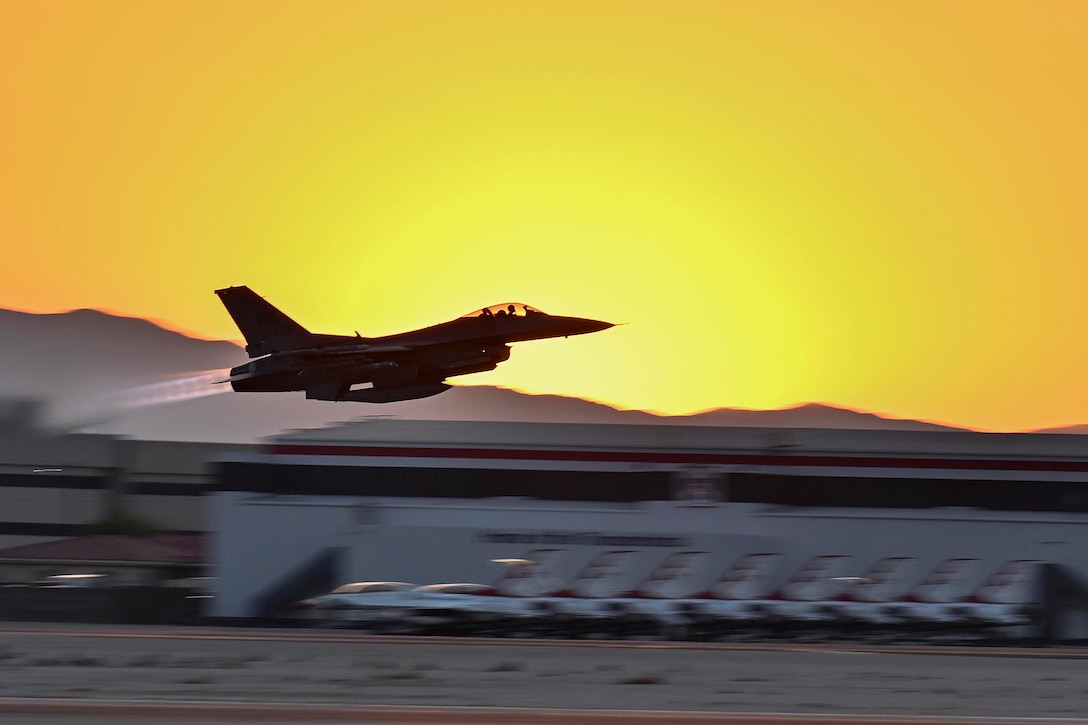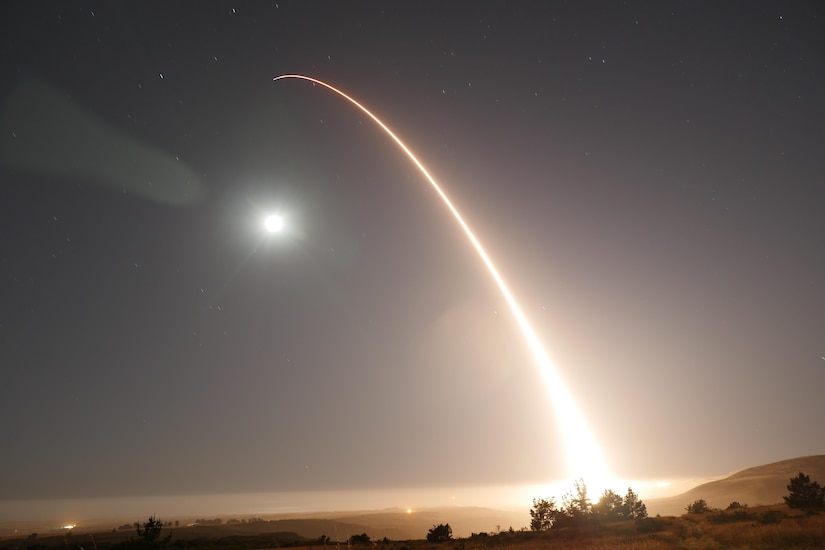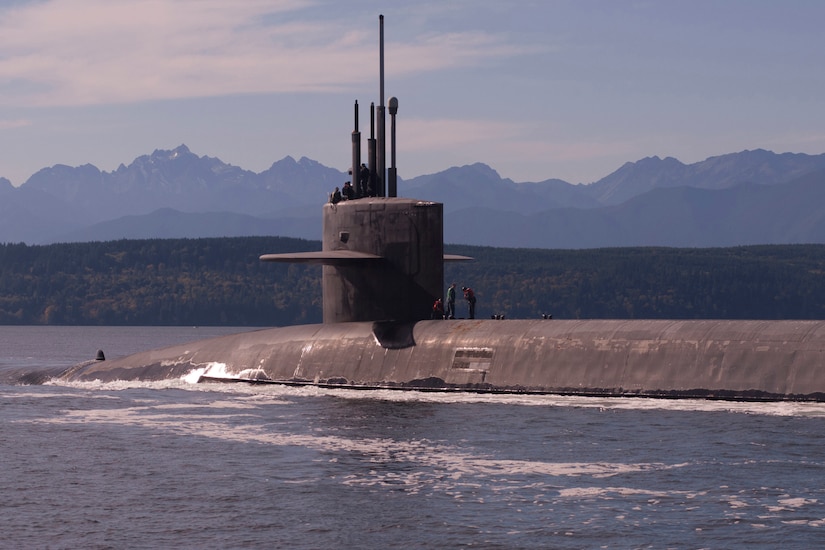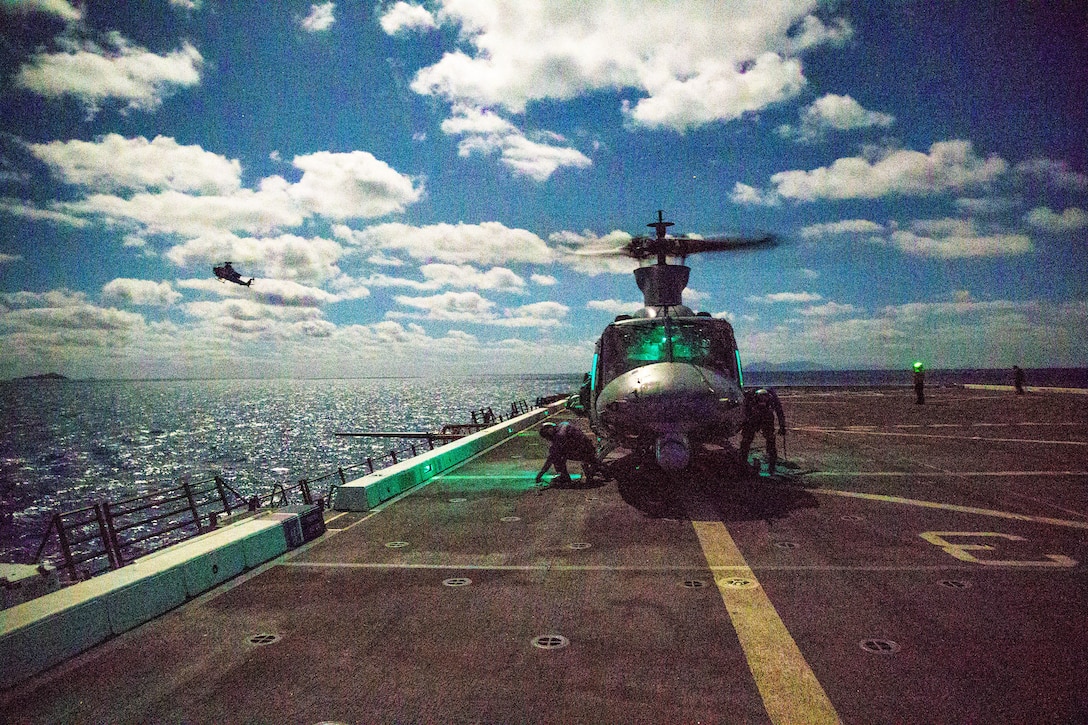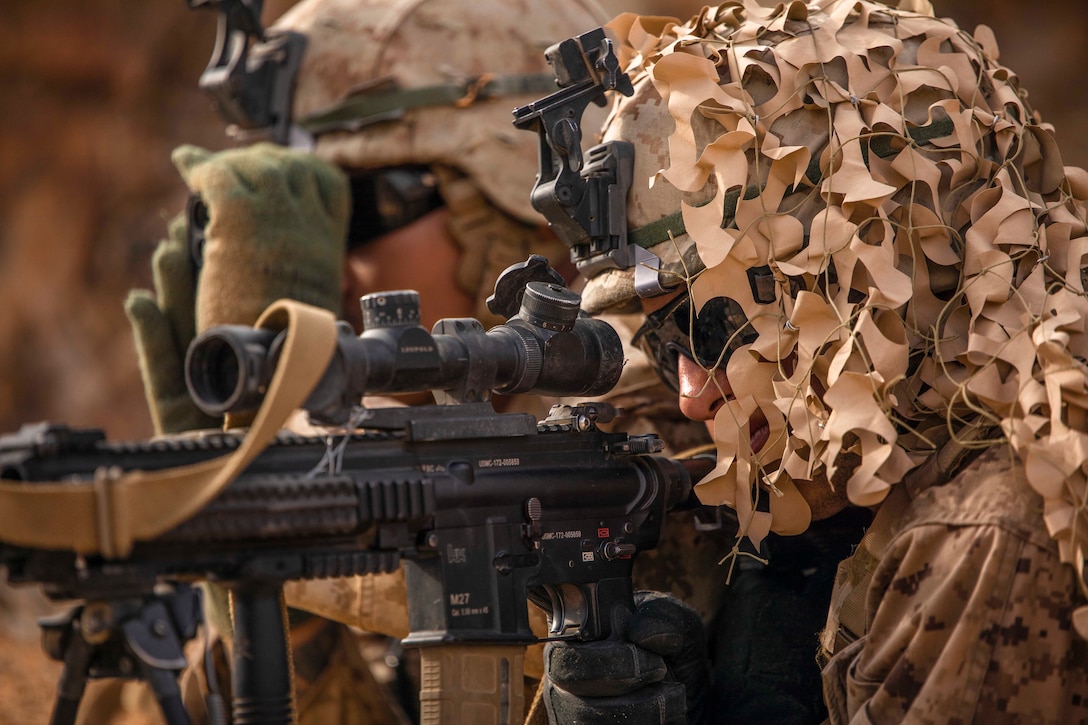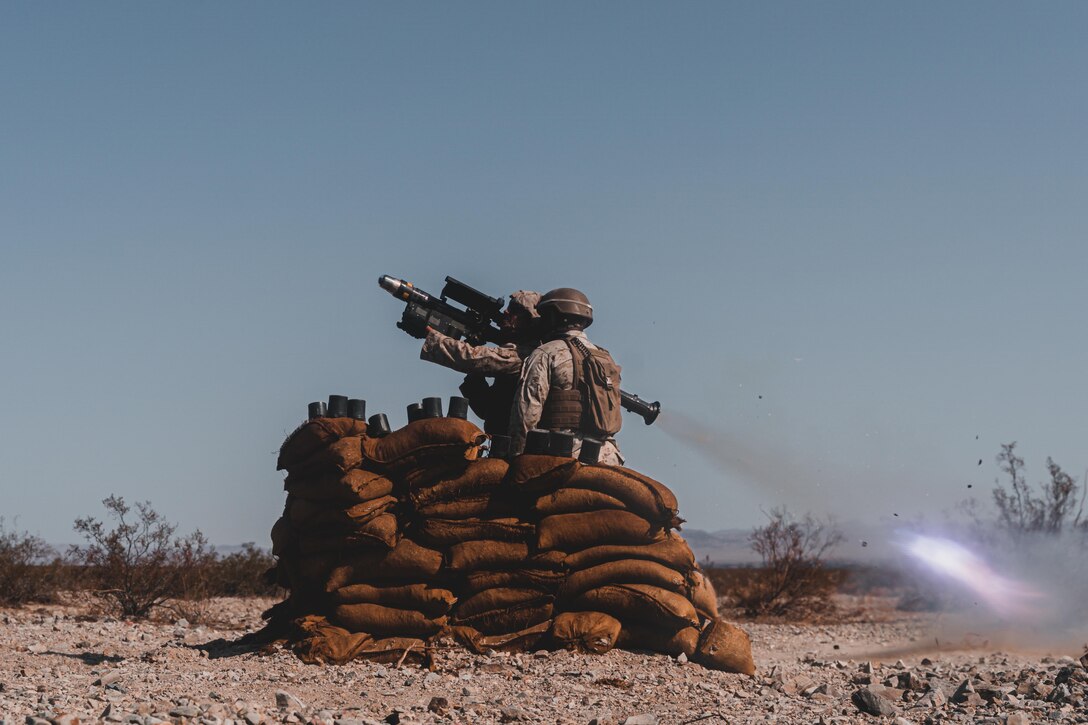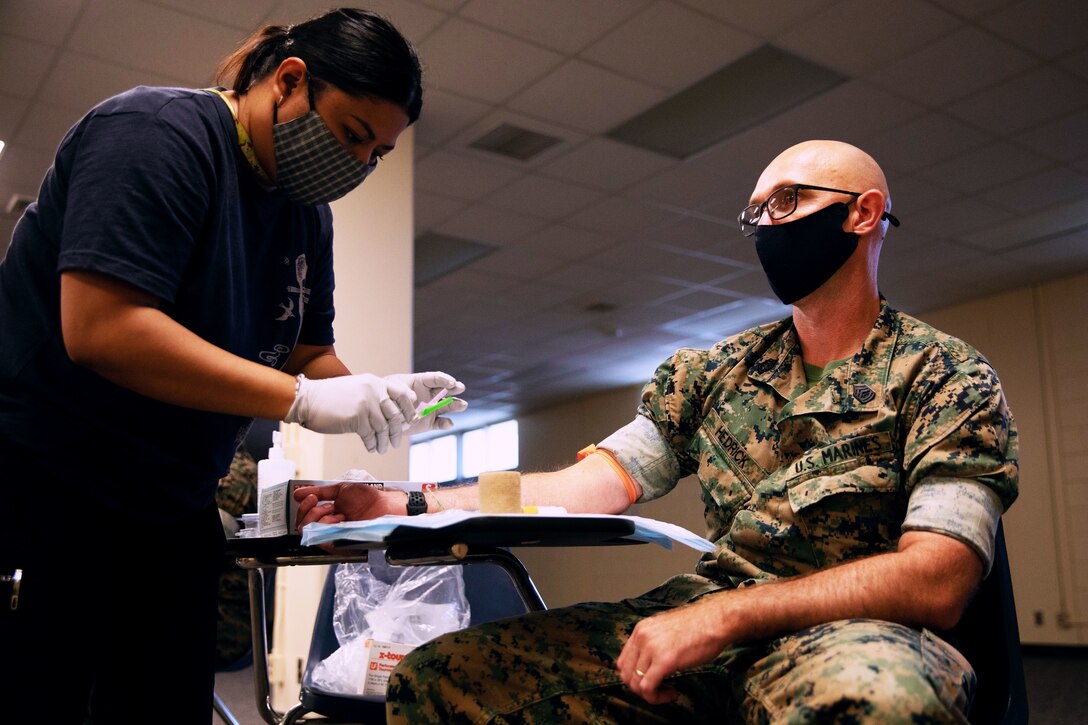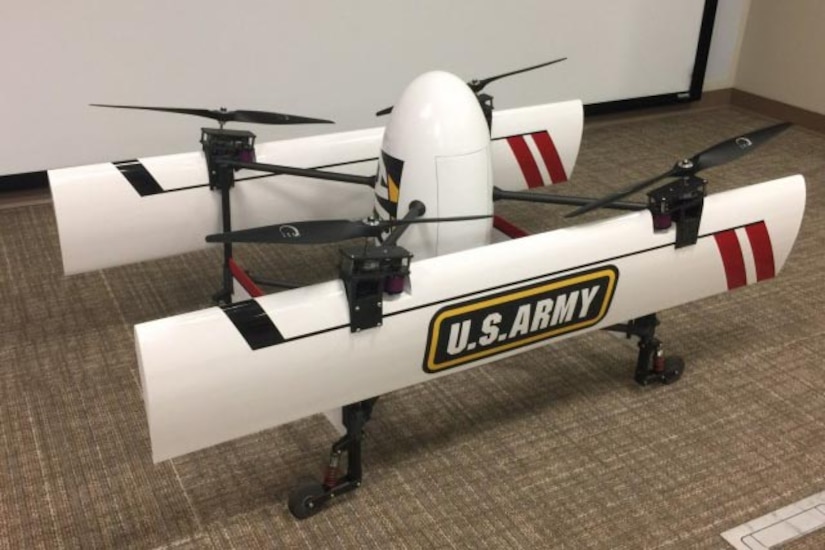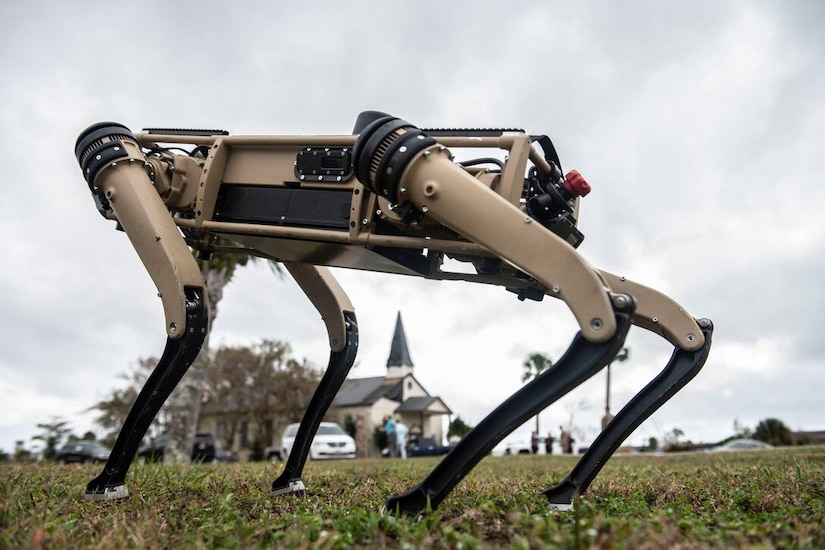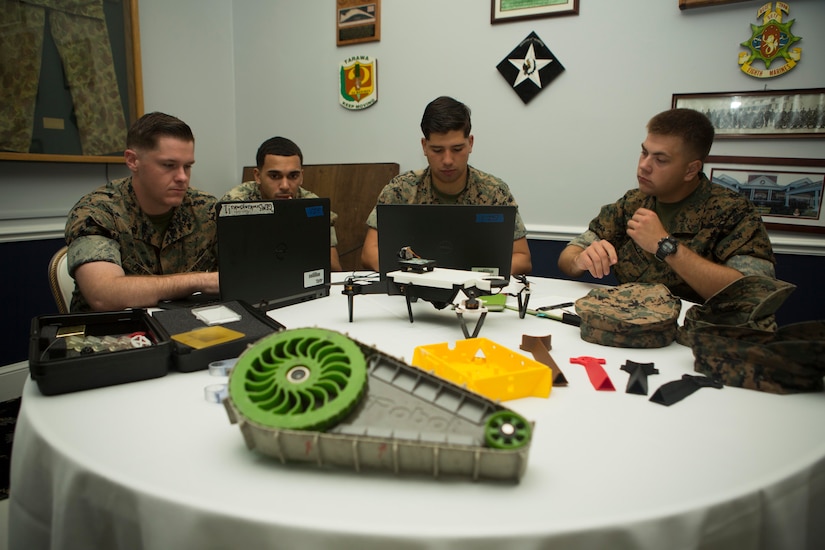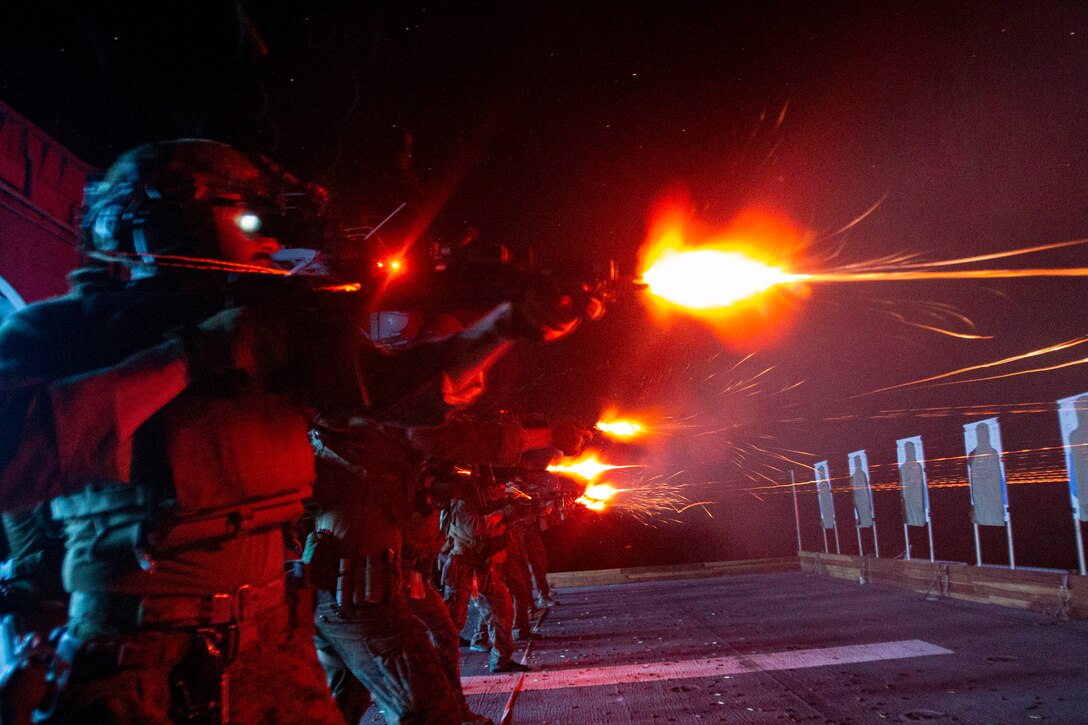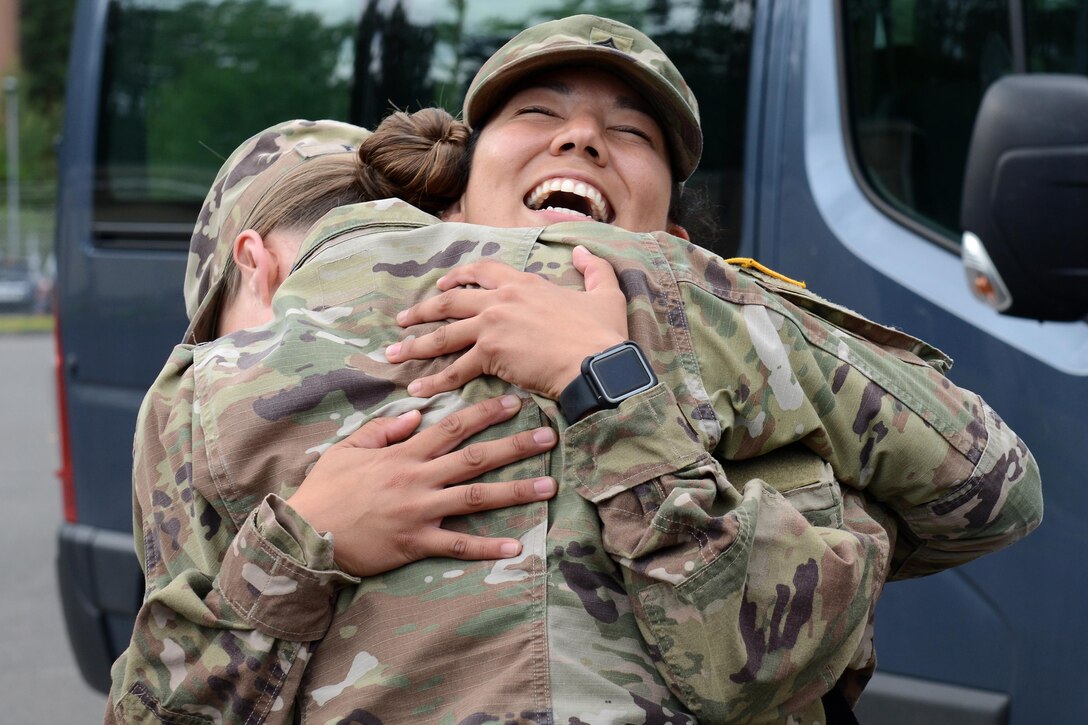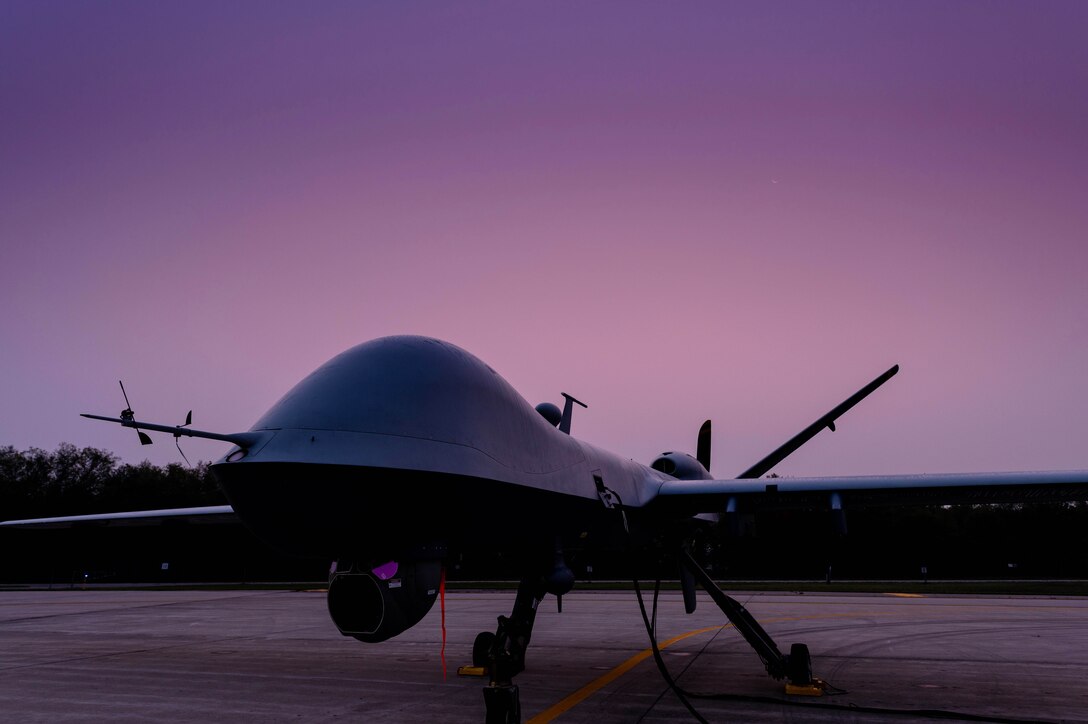Aug. 11, 2021
PRESS SECRETARY JOHN F. KIRBY: Good afternoon, everybody. A couple of things at the top, as soon as I get this thing to load. Think you saw our readout, the Secretary did speak by phone earlier today with the Russian Minister of Defense, Sergey Shoygu. The purpose of the call was to support transparency and risk-reduction efforts following the July 28th resumption of the U.S.-Russia Strategic Stability Dialogue in Geneva, Switzerland.
Onto other personnel issues, last night the Senate confirmed Gil Cisneros as Undersecretary for Personnel and Readiness, and we look forward to welcoming Gil here to the Pentagon, glad to have him on board. And we now have 21 nominees to be confirmed by the Senate.
Additionally, the Senate confirmed Army Lieutenant General Laura Richardson to command U.S. Southern Command, and receive her fourth star. And so, again, we're looking forward to seeing her transition into that new role and to assume command at the appropriate time.
Lastly, I -- just to level set, I have seen lots of press reporting this morning about assessments coming out of Afghanistan. Just before I -- I know you're all interested in that, let me tell you, I am not going to talk specifically about intelligence assessments one way or the other. We continue to monitor the situation in Afghanistan closely. We are mindful of the deteriorating security situation. And our focus right now remains on supporting the Afghan forces in the field where and when feasible we can from the air, as well as completing our drawdown in a safe and orderly way. We are on track to do that by the end of the month.
Lastly, we are also remaining focused on the future bilateral relationship with Afghan forces that will be largely in a financial way and over-the-horizon support. As well as making sure that we maintain the capabilities we need to protect the homeland from any terrorist threats that might be emanating from Afghanistan in an over-the-horizon fashion.
So again, seeing the press reporting I'm not going to confirm or deny the figures that some of you have been reporting. We don't talk about intelligence assessments. Our focus is on getting this drawdown done in a safe and orderly way.
With that we'll go to Lita.
Q: Thanks John. All right, I've got to take a stab at this, OK? Has the United States accelerated it's planning for a withdrawal or evacuation of any Americans from Afghanistan, specifically Kabul, considering this deteriorating situation that everyone can see? And, or has the Pentagon moved any additional either forces or assets into the region to help do some type of evacuation or is that expected in the coming days?
MR. KIRBY: I have no planning to speak to today, Lita. And I have no force movement or operational transitions to speak to as well today.
Q: And just as a follow-up has the situation deteriorated faster than the U.S. was planning such that is there a belief that the U.S. may have to get out or get at least some people out before the end of August?
MR. KIRBY: Again, I'm not going to speculate about contingencies in, you know, and speculate about the future and the future security situation. We're focused on the security situation that we face now, which again we've acknowledged is deteriorating. We are certainly mindful of the advances that the Taliban have made in terms of taking over yet an increased number of provincial capitals.
And our focus is on supporting the Afghans in the field where and when we can and completing this drawdown. And I'm not going to speak about planning contingencies or potential outcomes.
And the other thing I'd say is that no potential outcome has to be inevitable, including the fall of Kabul, which everybody seems to be reporting about. It doesn't have to be that way.
And I think it's going to be -- it really depends on the kind of political and military leadership that the Afghans can muster to turn this around. They have the capability, they have the capacity and now it's really time to use those things.
Yes, Nazira?
Q: Thank you, John. I don't know how should I ask my question. I cannot express my people's situation. We have 300,000 Army. As President Biden said the Taliban is 73,000 people.
How can the Afghan Army and Afghan police not be able to defeat Taliban? It's a high number, 300,000 -- we have our -- what is the main reason that they are not able to fight against the Taliban. Taliban is very close to Kabul.
MR. KIRBY: We have seen -- we have seen them fight and contest areas. As for why in any given place the Taliban continue to make advances, that's really not a question that we're prepared to answer here at the Pentagon. This is an Afghan military strategy that we are trying to support as best we can and it really is going to come down to their leadership.
They have, as you rightly said, they have the advantage in numbers, in operational structure, in air forces and in modern weaponry and it's really about having the will and the leadership to use those advantages to their own benefit.
And I just can't and I won't, as I've been very scrupulous about not doing from the podium, speak into a daily battlefield assessment when it's -- these aren't battles that we are involved in on the ground. And we are -- yes, we are providing some support from the air, but this is really an Afghan strategy and they should speak to that.
Q: Where did Taliban get their supported, which countries supported them financially and other stuff?
MR. KIRBY: I don't have an assessment of Taliban resources. And so I wouldn't speculate that there are a nation state or nation states that are necessarily backing them up. We have definitely seen in some of the things they've done on the ground have been clearly designed to help them gain revenue, border crossings, trying to take control over certain highways and avenues of transportation and communication, ways that will allow them to support themselves and to gain some revenue. But beyond that I'm really not at liberty to speculate.
Yes, Megan, did you have a question?
Q: Yes. So you're repeatedly getting these questions about how -- why the Afghan Army isn't apparently up to snuff and how America could just walk out on Afghanistan under these conditions.
Do you think the Defense Department could have better -- done a better job in recent months or in recent years in articulating what the goals were in Afghanistan and what the -- what things were supposed to look like or what they're not expected to look like when we leave?
MR. KIRBY: Well, I mean I can't speak for the entire 20 year history of the war, Megan, but I mean that the war has -- as the President has said, I mean, the goals did migrate over time.
And it would be -- it would be wrong for us not to acknowledge that we did help enable some progress in Afghanistan. More children in schools, including girls, economic and political and social opportunities for women. A democratically elected government, it's not saying it's not flawless, but a government. And conditions -- living conditions that are much better, including life expectancy.
So there has been a lot of progress made over the last 20 years, but the President made this decision based on his calculus that we have greater counterterrorism threats that -- against this -- our homeland and our people and our interests than those that are emanating out of Afghanistan. That the main purpose for going into Afghanistan in 2001 has been achieved in terms of the significant degradation of the threat by Al-Qaeda and, of course, the death of Osama Bin Laden.
And that the recipe can't be just a constant U.S. presence in Afghanistan that never ends. So he's been clear in his direction of what he expected this Department to do since he became Commander-in-Chief and that's what we're executing to.
The direction that we've be given to do a couple of things. To draw down our forces to a level that is only commensurate with helping us maintain a diplomatic presence. To being able to support and protect that presence and enable diplomats to continue to do their jobs in Afghanistan. And then to continue to support the Afghan forces through financial means and through some contract support and over-the-horizon logistical support.
And then number four, to make sure that the greatly reduced threat of terrorism from Afghanistan stays greatly reduced and that the homeland doesn't become victim to an attack like we did 9/11 20 years ago, from terrorist networks that are operating out of Afghanistan.
Let me go to the phones here. Jeff Schogol, we'll go to you.
Q: Thank you. Does the U.S. military have any plans to destroy sensitive Afghan equipment such as their A-29s before the Taliban achieves its total victory?
MR. KIRBY: Jeff, you're speculating about again an outcome that doesn't have to be inevitable. So, the short answer to your question is no. We are focused on supporting the Afghan Forces where and when we can. And what we, you know, what I think we're all mindful of is that they have advantages and now is an opportunity for them to use those advantages, to include political and military leadership.
Ah, Dan Sagalyn.
Q: What is U.S. military’s thinking about what is the Taliban strategy? What does the U.S. military’s think about why the Taliban are concentrating in the north?
MR. KIRBY: Dan, I'm not going to speak for Taliban strategy. I think you can understand why we wouldn't do that. All I can do is tell you what we're seeing on the ground. And what we're seeing on the ground is that the Taliban continues to advance and to assume control of district and provincial centers that clearly indicate that they believe it is possible to gain governance through force, through brutality, through violence, through oppression, which is at great odds with their previously-stated goal of actually wanting to participate in a negotiated political solution.
Clearly their actions are not in resonance with what they have said they want to do at the negotiating table. Now what their military strategy is I think you know they should speak to that. We don't believe that there is an effective military solution to be had to this conflict, that the only way through is a political negotiated settlement that includes all Afghans, that is Afghan-led and that the Afghan people have a voice and a say in.
Jim.
Q: John is it too late for peace at this point though?
MR. KIRBY: I don't believe anybody thinks it's took late for peace. I mean we wouldn't be talking about a political settlement and a need to have a negotiated settlement if we believe that peace wasn't possible.
Yeah, Mike.
Q: Yeah, John, the statement you made, that the recipe can't be a constant U.S. presence in Afghanistan, it never ends. We've had U.S. troops in Europe for 70 years, including 20 years after the fall of the Soviet Union. What's the difference between that situation and Afghanistan?
MR. KIRBY: We're not in a combat role. We're not in a combat role, Mike. And that's what the President's talking about. I mean we're still going to have U.S. Forces in Afghanistan to help protect our diplomatic presence. What he's talking about is having U.S. Forces in Afghanistan in a combat role and having this war just never end.
Jeff Selden.
Q: John, thanks very much for doing this. At the White House earlier this afternoon, Jen Psaki was asked about U.S. air strikes in support for the Afghan Forces beyond the August 31st deadline. She said it was a good question. So, is the Defense Department rethinking the kinds of support it's going to offer Afghan Security Forces beyond that deadline? And also we keep hearing from you and from others that the Afghan Security Forces have the capacity, they have the capability to push back against the Taliban but they need the will.
At what point does that lack of political will to stand up to the Taliban begin to endanger the embassy in Kabul and other U.S. personnel and assets that are still in Afghanistan?
MR. KIRBY: Well I mean on your second question, I think that remains to be seen, Jeff. We do not believe that any of the potential negative outcomes that we've seen reported have to be inevitable, they have to happen. And I'm not prepared to go through a series of you know what, at what factors, what conditions would lead us to believe that no amount of political military leadership is going to turn the tide. We still think that that can happen. That through solid political military leadership, given the advantages that they have, that they can use that. And I'm sorry you had another, your first question which I completely blanked on.
Q: The idea of rethinking or giving the Afghan Security Forces more help beyond the August 31st deadline.
MR. KIRBY: Yeah, thank you. Right now the authorities that we have to support the Afghans from the air expire at the end of this month with the drawdown. And so we are focused on using the authorities that we have, the capabilities that we have during the rest of the drawdown to support Afghan Forces from the air. There has been no policy decision about what it looks like beyond that and I'm simply not going to speculate.
Oren.
Q: To what extent did the U.S. underestimate the ability or capabilities of the Taliban to make these sorts of gains this quickly?
MR. KIRBY: It's not about whether we underestimated or estimated appropriately. We had seen even before the President's announcement that the Taliban had been making advances, largely at the district level. But they're moving in started well before the Biden Administration and certainly well before the President decided that we were going to withdraw.
Now, we have certainly seen in recent weeks that progress advance at a clip, no question about that. It's not about surprise, Oren, it's not like we weren't watching this. It is obviously we're watching it with great concern. But I wouldn't say that there was an underestimation here. What still, I mean, you know we can revisit the past all you want but what matters really is today and where we are now and again we believe Afghan Forces have what they need to make a significant difference and it really is going to come down to leadership.
Q: John, if the Afghan Forces have what they need, why are they losing?
MR. KIRBY: Lucas, I'll try this again. We had this discussion yesterday. I can't speak for Afghan strategy or Afghan tactics in the field. What I can tell you is that they do have those advantages, including, including Lucas, the advantage of additional air support by the United States, which we continue to provide. We flew strikes, several strikes there over just the last 24 to 48 hours. So, we're still supporting them as well and they have advantages that the Taliban doesn't. And, again, I really think as I said before, when we look back on this we'll see that it really did come down to leadership, both political and military.
Q: But John, where's the proof? When you say that Afghan Forces have advantages over the Taliban, we're just not seeing it on the battlefield right now.
MR. KIRBY: What I mean is they've got greater numbers, they've got an air force, and, oh by the way, their air force is also flying. In fact they're flying more strikes, conducting more strikes than the United States is. And it's an air force that we continue to contribute to. We just gave them another three new Black Hawks. Over the course of 20 years, we've 130 some odd air craft to their inventory.
We're still providing contract maintenance support for -- to keep them flying. This is not an incapable or incompetent Air Force. They -- they know how to fight from the air and they are. They have modern weaponry. They have military organizational ability as well as 20 years of training in the field by -- by not just the United States but our NATO and Allied partners. So they have a lot of advantages. It's really just now about using those advantages.
Q: Last year the Afghan government let 5,000 Taliban prisoners go free. Has that been helpful?
MR. KIRBY: I can't speak to what each one of those prisoners did, Lucas. But obviously we don't want to see people rejoin the fight on -- on behalf of the Taliban.
Q: Are you seeing some of those prisoners rejoin --
MR. KIRBY: I don't have any intelligence assessments on that. I don't -- I don't know.
Q: Just overall, do you think the previous Administration’s pressure to free those prisoners, has that been helpful in the fight against the Taliban?
MR. KIRBY: What's -- what's been -- what's been helpful against fighting the Taliban is, again, the kinds of support that the Afghan forces have received from the United States and from our NATO partners and that support will continue.
Q: Since they want to release some of the prisoners from the jails, Taliban says we go to Qatar and make peace but they have a condition. To release 5,000 more. I don't know if the Afghan government are ready to --
MR. KIRBY: I can't speak to what's going on in negotiations, Nazira. I mean obviously we don't want to see anybody who has -- we don't want to see anybody rejoin the fight on the side of the Taliban. Obviously that would not be a good outcome.
Q: Is this not the part of the agreement that U.S. sign with them in Doha, Qatar?
MR. KIRBY: I'll let my State Department's -- my State Department colleagues speak to the agreement in Doha. Our focus, as I said, is on completing the drawdown, supporting the Afghans when and where we can and making sure we can protect our diplomatic presence.
Q: Also, Taliban today warning to Turkey and they say you're not allowed to come and take security for Kabul Airport -- President Karzai Airport in Afghanistan. I think Afghan government wanted to -- Turkey to take care of the security of Kabul Airport.
MR. KIRBY: I haven't seen those comments. As you know we're in discussions with -- with Turkey about their agreement to take the lead for security at Hamid Karzai International Airport. We're grateful for their willingness to do that and we are continuing to work out with them what the modalities and the details would be going forward.
We obviously anticipate that the United States would be a part of that security posture at the airport. I can't speak to those comments in particular.
Dan Lamothe, Washington Post.
Q: Yes, thank you, John. In the last few days President Biden, you, and some of the other Administration officials have stressed the capability of the Afghan forces and said there are about 300,000 of them. Given ghost soldiers, desertions, defections and some of what we've seen on the battlefield that certainly isn't the case now and hasn't been for some time.
In addition, the ones who are left, there are many reports of food, water, ammunition shortages, that sort of thing. Not to put a too fine of point on it but how do you explain that contradiction and how did the Pentagon fall so short in training forces that are not only capable on a given day but sustainable for a long term? Thanks.
MR. KIRBY: I would challenge -- I'd challenge the assumption, Dan, that we fell short over the course of 20 years. I mean we and international partner help fund Afghan national defense and security forces if you include police that numbered as much 352,000.
And now can I give you what the role call and the muster is on any given day, no, I can't. But I can tell you that we're confident that over the course of the 20 years we helped raise any army and police force that numbered over 300,000. Now again, what they're doing on any given day and who's on the field, that's really a question for our colleagues in Kabul.
But I take exception to the notion that somehow over the course of 20 years we simply failed in trying to improve the competency and the capability of Afghan forces when we look at what they're doing today.
It -- it comes down to leadership on the battlefield and leadership in Kabul and we are not on the battlefield with them. Yes, we're over the battlefield. I understand we are supporting with limited air strikes but we aren't in the field with them now. And so these issues of leadership are issues that Afghan leaders both military and political have to be able to address.
Q: Doesn't the Pentagon have some culpability in this though? It sounds like you're just passing the buck when you say that.
MR. KIRBY: I'm sorry, Dan. I lost you. Go ahead.
Q: Doesn't the Pentagon have some culpability in this though given the amount of billions of dollars, the American lives lost, it sounds like you're passing the buck when you say that.
MR. KIRBY: No, nobody's passing any bucks, Dan. Not at all. I mean we're all watching this with great concern clearly and the whole international community. Certainly our NATO Allies. We're also dutifully involved in combat, lost many lives, lots of sacrifices over the course of 20 years that we can't forget. Nobody's passing any bucks here.
We -- we have worked hard to improve Afghan competency and capability in the field. But at some point, and the President has said this very clearly, at some point that competency and that capability has to be owned by the Afghans themselves and we are at that point.
Paul Handley.
Q: Hi, John. Can you -- can you hear me, John?
MR. KIRBY: Yes, sir.
Q: OK. Yes, a couple things. One, is when you're talking about decisions that need to be made by the Afghan leadership, today President Ashraf Ghani went to the north where he met with Atta Mohammad Noor and the famous warlord Dostam at Mazar-i-Sharif.
I'm wondering is that the kind of thing that you want to see the -- the Afghan government doing to unite with the old warlords and militia leaders to fight back the Taliban? And I have a follow-up.
MR. KIRBY: We've seen reports of President Ghani's trip. I certainly would let him speak to the conversations he had and -- and what the -- what discussions he's having with leaders up in the north. Certainly as the president of his country and the commander-in-chief of his forces, he should -- he should make those decisions and have those discussions that he believes are in the best interest of defending his people and his territory.
Q: But is that the kind of think you'd like them to see -- do you think I would be effective for their fight against the Taliban?
MR. KIRBY: Paul, we're not prescribing specific methods of defense for him. It's his country. He's the commander-in-chief and we're not going to pass a certain judgment about what discussions he's having or what other leaders he's meeting with and what they're saying. I mean I would defer to President Ghani to speak to his discussions and what -- what the goals were, what the objectives were of his visit.
This is, again, he's the commander-in-chief and -- and it's his political leadership, his political will that can make a big difference here.
Pierre.
(CROSSTALK)
Q: Does it surprise you that topic of Afghanistan did not come up in the telephone call between the Secretary and his Russian counterpart.
MR. KIRBY: We provided a readout and I'm going to leave it at that, Pierre. I'm not going to go beyond the readout.
OK, Jared.
Q: Hi, John. Thanks for doing this. Just wondering if you could tell us the latest -- what is the latest conversation between DOD officials and their Turkish counterparts on the Kabul Airport mission? And I have a follow up to that?
MR. KIRBY: I don't have any specific update for you. We continue to have discussions with the Turks about security at the airport. Obviously, we're mindful that security at the airport is critical for our ability to have a diplomatic presence in Afghanistan as well as our Allies and partners. And so, those discussions are ongoing. I don't have any updates for you.
Q: OK, and I if might we've seen that the Taliban has alleged that the U.S. has gone back on its agreements with these airstrikes. Has there been any consideration that these airstrikes could be potentially putting the agreed Turkish mission in jeopardy or making it more challenging or complicated to fulfill?
MR. KIRBY: The airstrikes putting the Turkish mission at more jeopardy?
Q: Because the Taliban has accused the United States of reneging on its agreement.
MR. KIRBY: Well look, it's not the United States that continues to exert violence on the Afghan people and attempt to try to find a military solution to what should be a political settlement. It's not the United States that is now using oppression and brutality and fear to try to gain some level of governance over parts of Afghanistan. It's not the United States that is trying to undo what the Taliban have previous said they were committed to, which was, again, a negotiated political solution.
We are, as we've said and we've been fairly honest about it, to the degree we can, continuing to support Afghan forces in the field with the capabilities that we have available to us.
Last question. Ryo. OK, go ahead.
Q: Thank you. Please let me change the subject a little bit. Today the Secretary spoke by phone with his Russian counterpart, but the Secretary has also been waiting to engage with his Chinese counterpart. Could you give us an update on the Secretary's efforts or progress to engage with his Chinese counterpart?
MR. KIRBY: I would not say that the Secretary's waiting to engage his Chinese counterpart. There has been no discussion at his level with a counterpart in China, and when that makes the most sense, you know, we'll pursue that, but I have no discussion to announce or to anticipate or to readout today.
Q: A quick follow up. The -- I'm wondering who is the most appropriate Chinese counterpart to the U.S. Secretary of Defense for the DOD perspective? Is that the China's Minister of Defense or Vice Chairman of the China's Central...
MR. KIRBY: I think we've -- I think we've said clearly that for the purposes of the kinds of discussions that we think are important with China it's at the Vice Chairman level.
Q: John, vaccine question?
MR. KIRBY: Yes.
Q: Are you throwing service members in the brig if they refuse to get the jab?
MR. KIRBY: Lucas we talked about this as well yesterday. I'm happy to go back over it again. We believe that our commanders, should an individual not want to take the vaccine for other than religious or medical purposes, then our commanders will have a range of tools available to them to help these individuals to make the best decision for them and for their families, for their teammates, that are short of using the Uniform Code of Military Justice, in other words disciplinary measures.
Yes. Once a vaccine has been mandated, it becomes a lawful order to compel an individual to take that vaccine. We do this across the force. 17 some odd vaccines, 8 of which are required just to get into boot camp. I've been stuck myself all throughout the course of 29 years. It's not -- we have a process in place and it's just generally not a big problem. And I -- and as you saw in the Secretary's memo once we get to a point where we're now executing a new vaccination program, in other words, mandatory, that he expects commanders will execute that program with skill and professionalism, and he also used the word compassion.
Understanding that there are trepidations out there. And so, our expectation is if an individual doesn't want to take the vaccine that we're going to provide them some counseling both from a medical perspective, access to docs, and access to leaders in their chain of command, so that they fully understand the implication and repercussions to them if they don't take the vaccine, but I don't want to speculate -- I mean, it'll be a case-by-case basis, Lucas.
It's not -- it's not like the Department's going to have some sort of blanket disciplinary policy. We expect commanders to use the tools that they will have available to them to get soldiers and sailors and airmen and guardians and Marines to do the right thing.
Q: This building has a lot of blanket policies. Can't you just say if you don't get the vaccine you're going to lose liberty, lose vacation time, maybe get docked in pay and lose rank?
MR. KIRBY: But, Lucas, we don't do that now for mandatory vaccines. We don't have a blanket Departmental policy for the polio vaccine or smallpox or even the flu. I mean, we -- you know, we leave that up to commanders and their discretion, and like I said, they've got plenty of tools available to them short of disciplinary action to try to get their troops to do the right thing.
Q: When you mentioned religious expectations. Which religions are you talking about here?
MR. KIRBY: It doesn't -- there's no -- it's not -- Lucas, there's not a list of, you know, religions. It's about -- it's about -- it's about the religious beliefs that an individual might have that they believe should expect them from the vaccine. And, as I said yesterday, there's a whole process written down in instruction that governs that process to include, again, counseling by doctors, counseling by commanders.
And there's -- each Service does this differently. I won't speak for them to handle these applications for religious exemptions, but it's not -- you know, it's not like it's written -- there's not a list of acceptable religions here. It's about taking these concerns by individuals very seriously, and we take freedom of religion very seriously in the military.
Q: Yes. John, a lot of what we heard today is frustration, concerns. Some of the questions seem to focus on inevitability of a negative outcome, but what are some of the positives that you are seeing from the Afghan forces right now, and what are some of the positives that you're seeing from the current U.S. support being provided to the Afghans?
MR. KIRBY: Luis, we have seen -- we have seen Afghan forces fight back in certain places. In fact, there's fighting going on as we speak. We have seen the Afghan Air Force be very aggressive. As I've said, they conducted many more strikes in just the last 24 hours than we have. They're professional. They're well trained. And they are in the air.
And I would also say, you know, for our perspective, though we are conducting fewer airstrikes, we're very confident that the strikes we're conducting are hitting the targets they're meant to hit, that they -- that we are being precise, and that we are having an impact at the tactical level.
Now clearly from a strategic perspective the Taliban keep advancing. There is no question about that. But the narrative that in every place in every way the Afghan forces are simply folding up and walking away is not accurate. I am not at all and don't -- nobody should take away from this that I'm discounting what we're seeing, a deteriorating security situation. We've been nothing but candid about that.
But to your exact question, there are places and there are times, including today, where Afghan forces in the field are putting up a fight.
Q: And does that mean that at some point it's possible that the Afghan forces will be strong enough to reconstitute themselves so that they could potentially take back...?
(CROSSTALK)
MR. KIRBY: Well, we certainly would like to see that eventuality. As I've said many times before, no outcome is inevitable here. And the Afghan forces, they do have -- they do have the capacity to do exactly that. It's really about the will and the leadership on the field to make that happen. That's where -- and that's not uncommon in any military. Equipment, training, all of that is important, but it is often for naught if you don't have the leadership and the will to use those advantages to your benefit.
Mike.
Q: But at this point now, has the -- have the Afghan forces recaptured any terrain that was taken by the Taliban?
(CROSSTALK)
MR. KIRBY: I will tell you that, again, without getting into a battlefield assessment, Mike, because I don't want to do that. There are -- as we speak, there are places in Afghanistan which are actively being contested right now.
OK? Thanks, everybody.

